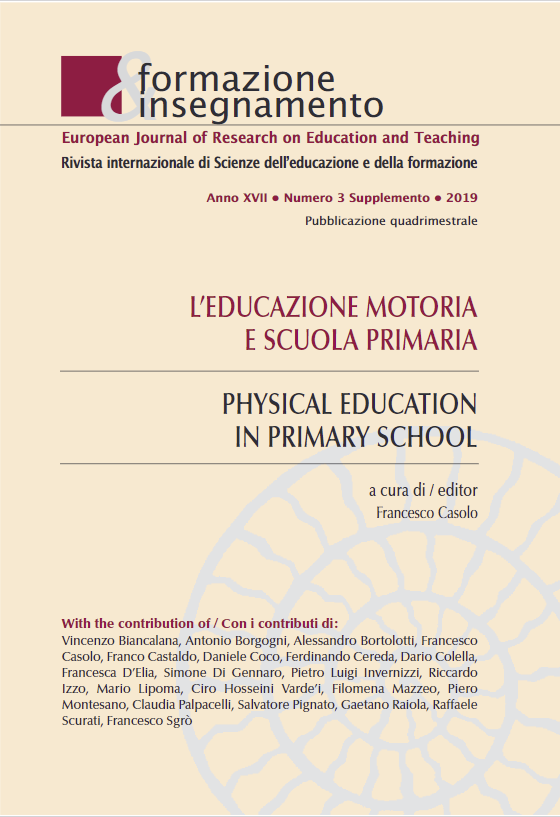Nutrition, supplements, and drugs to improve sports performance in order to educate for the correct intake and to promote health in primary
DOI:
https://doi.org/10.7346/-feis-XVII-03-19_12Abstract
In the last decades, health is a primary topic. A balanced diet is key to living a healthy life. Over time, the idea has supported by assurance that the sport associated with an adequate diet allows the achievement of an excellent state of health. Therefore, the intake of the main nutrients, together with a regular physical activity, favors the regular exercise of the energetic, plastic and regulatory function of the body. A balanced diet does not need to be integrated, except in particular training states. However, the incorrect idea that integration can increase physical performance has become widespread. However, excessive and incorrect use of supplements can have negative consequences on health. Genetic, cultural and social factors can influence a dietary supplement. In our society, the teaching of physical education and sport constitute a fundamental aspect for the human, social and intellectual development of the individual and for the prevention of doping behaviors. This teaching must begin from primary school, a fundamental time that links to exercising a good education in incorrect correct lifestyles. Nutrition therefore plays a role of fundamental importance in the daily life of a sportsman and certainly this role reflects on psychological well-being but above all on its sporting performance. The teacher, therefore, plays an important role in the training of “physically” educated people and in promoting a primary care. This healthy lifestyle must be encouraged from an young age, it must be strengthened and followed throughout the across life course.
Downloads
Published
How to Cite
Issue
Section
License
Copyright (c) 2019 Pensa MultiMedia

This work is licensed under a Creative Commons Attribution 4.0 International License.
Formazione & insegnamento is distributed under Attribution 4.0 International (CC BY 4.0).
For further details, please refer to our Repository & Archiving Policy, as well as our Copyright & Licensing Terms.





